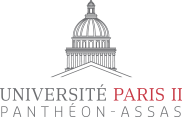The United States, having been the driving force of post-War multilateral system, now consider multilateralism as a « secure » practice, allowing them to validate an « undeniable leadership position over a global alliance ». In this configuration, it is admitted that American interests meet world interests : the United States would be performing a messianic job for the well-being of humanity, while serving their own national interests. In this perspective, Congress has endeavoured to maintain the sovereignty of the American Constitution and laws, shunning any idea of delegation or supra-national institution. Besides, American commitment towards the United Nations – which, to this day, are still perceived as chosen land for demagogic demands – has been expressed under the form of rejection of any compromise. In a situation of hegemony, multilateralism becomes the instrument of defence for status quo. As they have been challenged on September 11th, 2001, the United States do not seem ready to re-evaluate their multilateralist practice, when the concept of might, the use of force and coercion, have re-surfaced, and stand at the centre of the geo-political stage. –Summary AFRI-2003
Copyright © 2024 Centre Thucydide -
Politique de confidentialité -
Gérer votre consentement
Confidentialité
Nous utilisons des cookies sur notre site web pour vous offrir l'expérience la plus pertinente en mémorisant vos préférences et vos visites répétées. En cliquant sur "Accepter", vous consentez à l'utilisation de TOUS les cookies. Vous pouvez sinon paramétrer vos choix en cliquant sur "Paramètrer"
Gérer votre consentement
Confidentialité
Ce site web utilise des cookies pour améliorer votre expérience lorsque vous naviguez sur le site. Parmi ceux-ci, les cookies qui sont catégorisés comme nécessaires sont stockés sur votre navigateur car ils sont essentiels pour le fonctionnement des fonctionnalités de base du site web. Nous utilisons également des cookies tiers qui nous aident à analyser et à comprendre comment vous utilisez ce site web. Ces cookies ne seront stockés dans votre navigateur qu'avec votre consentement. Vous avez également la possibilité de refuser ces cookies. Mais la désactivation de certains de ces cookies peut affecter votre expérience de navigation.
Les cookies publicitaires sont utilisés pour fournir aux visiteurs des annonces et des campagnes de marketing pertinentes. Ces cookies suivent les visiteurs à travers les sites Web et collectent des informations pour fournir des annonces personnalisées.
Les cookies analytiques sont utilisés pour comprendre comment les visiteurs interagissent avec le site web. Ces cookies permettent de fournir des informations sur les métriques le nombre de visiteurs, le taux de rebond, la source de trafic, etc.
Les cookies fonctionnels aident à réaliser certaines fonctionnalités comme le partage du contenu du site web sur les plateformes de médias sociaux, la collecte de commentaires et d'autres fonctionnalités tierces.
Les cookies nécessaires sont absolument indispensables au bon fonctionnement du site web. Ces cookies assurent les fonctionnalités de base et les caractéristiques de sécurité du site web, de manière anonyme.
Les autres cookies non catégorisés sont ceux qui sont en cours d'analyse et qui n'ont pas encore été classés dans une catégorie.
Les cookies de performance sont utilisés pour comprendre et analyser les indices de performance clés du site Web, ce qui permet d'offrir une meilleure expérience utilisateur aux visiteurs.


